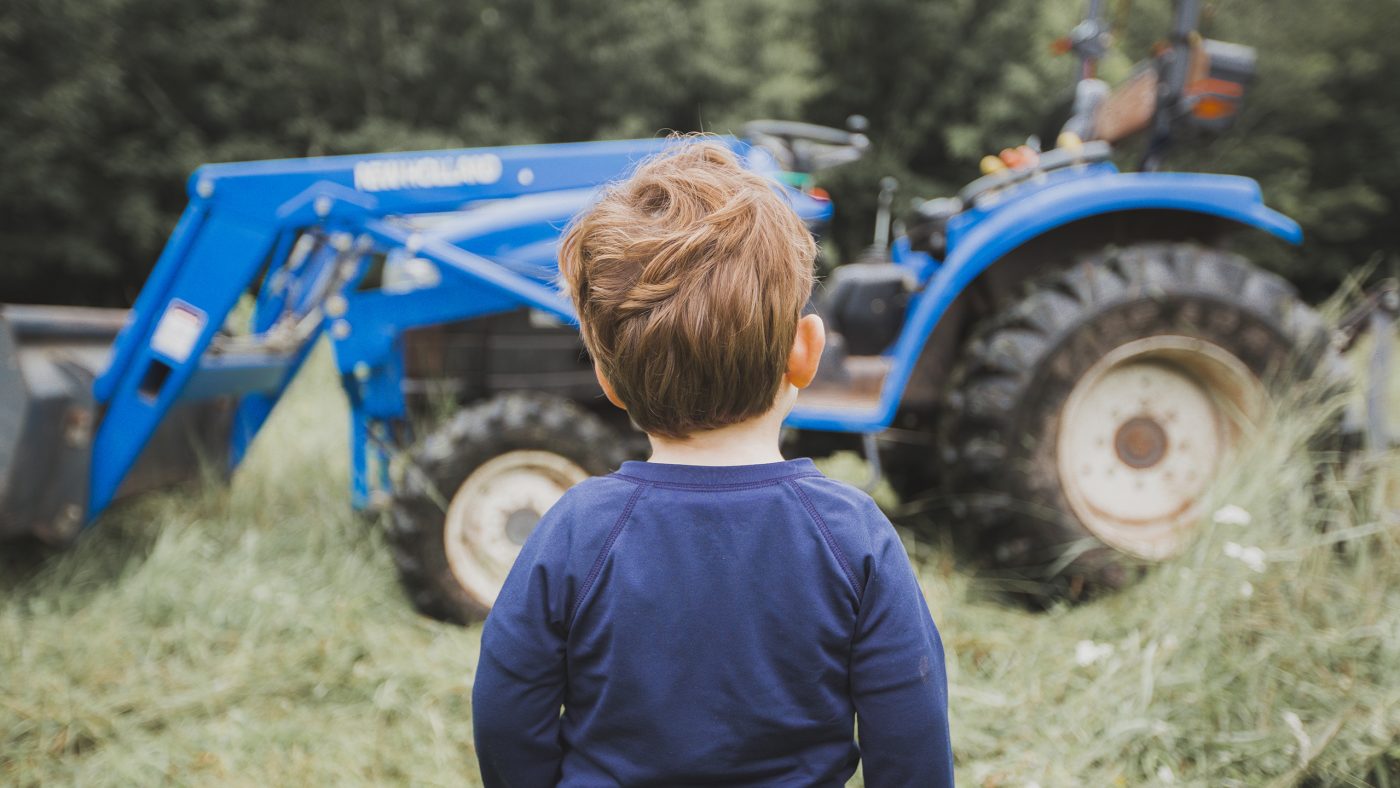Elliot’s Provocations unpacks current events in the early learning world and explores how we can chart a path to a future where all children can flourish. Regarding the title, if you’re not steeped in early childhood education (ECE) lingo, a “provocation” is the field’s term—taken from the Reggio-Emilia philosophy of early education—for offering someone the opportunity to engage with an idea.
We hope this monthly column does that: provocations are certainly not answers, but we hope Elliot’s Provocations helps you pause and consider concepts in a different way.
Old MacDonald had a farm
E-I-E-I-O
And on that farm he had no child care
E-I-E-I-O
With a ‘we are struggling’ here
And a ‘we are struggling’ there
Here a struggle, there a struggle, everywhere a struggle-struggle
Old MacDonald had a farm
E-I-E-I-O
The child care movement needs a broad base of support in order to win an effective, publicly-funded system. There have been strides in this direction over the past few decades, for instance bringing into the fold respected national security figures and leaders from rural areas facing a depopulation threat. Now, a new research paper is opening another door by showing how child care is impacting that most respected of American icons: farmers.
The paper, from professors Florence Becot of Penn State University and Shoshanah Inwood of Ohio State University, uses survey data from 729 farm families. It also draws on a literature review and prior work from the authors, including farm family focus groups. Becot and Inwood start by noting that “In the 1980’s, U.S. farm women identified the need for child care support to further their agricultural careers. Yet, it has taken over forty years for child care to be formally recognized as an issue affecting the trajectory and well-being of both the farm enterprise and the farm family,” with the two largest farm advocacy groups finally adding child care as a policy priority in 2023(!). As a sign of how understudied the issue of child care and farms has been, only two previous studies were conducted prior to this one.
In the popular imagination, children are a boon for farms: they are a ready source of labor and, ideally, take over the family business. This is accurate, yet incomplete. Becot and Inwood explain: “[R]esearchers and policy makers have overlooked the time, energy and resources that the households’ social reproduction require. The caring of children is particularly demanding as children need to be fed, educated and emotionally supported. Care work happens simultaneously and in competition with meeting the farm enterprise production needs. As such care work affects the structure and trajectory of the farm enterprise.”
Becot and Inwood’s study illuminated exactly what kind of changes the arrival of children—and lack of good child care options—causes for farmers. They found “the top three most common changes were decreasing resources allocated to the farm enterprise (i.e. cutting down the hours worked on the farm, scaling back farm production and/or farm employees helping with child care), cutting down on hours and/or stopping working the off-farm job, and hiring new workers to help on the farm and/or with household chores.”
While the mere presence of young children has an understandable impact, the need to decrease resources going to the farm itself was particularly pronounced among families with child care challenges. 46% of those without adequate child care reported making such reallocations, versus 23% of those who had decent child care options. Just 18% of farm families struggling with child care made no changes to their business at all. These moves have a predictable consequence on what the farm produces: “83% of respondents with childcare supply challenges report an impact on their farm productivity compared to 62% for those not reporting that challenge.”
It’s important to note, however, that this is not merely a story of how much corn or broccoli a given farm produces. It’s also a story about family flourishing. Becot and Inwood suggest, aptly, that “In addition to triggering a cycle of changes within the household and the enterprise with the potential to alter short and long-term farm economic productivity, the choices farm parents must make likely have consequences on their mental health and quality of life as farm parents might already feel stretched thin due to role overlap and child care challenges. Indeed, if child care expenses were lower, over half the respondents would prioritize allocating freed-up resources towards the well-being of the household over the enterprise/business.”
To illustrate their point, consider this quote from one of the research participants: “Running a small farm, taking care of kids and managing jobs is really tough. Every week, we have to plan everything: meals, work schedules, kids’ activities, farm tasks and more. On top of that, we need to find babysitters. It’s a lot to handle, and it leaves us feeling tired and worn out.”
So what kind of external child care do farm families utilize when they can? Perhaps unsurprisingly, they rely heavily on family, friends, and neighbor (FFN) caregivers, an option taken by nearly two-thirds of families who use any non-parental care. That said, a solid 42% of those families also reported using some form of paid provider, whether an occasional babysitter or a slot in a family child care program or child care center. Availability and cost continue to be a challenge for many.
All of this goes to show that farm families need a version of what all families need: good, affordable (ideally free) child care options, including direct support for trusted caregivers like FFNs as well as parents themselves. Hopefully, understanding child care’s impact on farmers will help open the eyes of recalcitrant politicians. As Becot said about the study in an article from Penn State, “the implication here is that child care not only impacts farm success for the families, but food availability for all.”
While there is a unique legislative avenue available to help farm families—the Farm Bill, which is ostensibly supposed to be passed this year—getting farmers (and their Congressional representatives) behind a comprehensive approach holds the most promise for a sustainable solution. With such a child care system in place, farm families will be healthier, and the nation will be more prosperous and secure.
It was Dwight Eisenhower who quipped, “Farming looks mighty easy when your plow is a pencil, and you’re a thousand miles from a corn field.” I might add, it also looks mighty easy when you’re not the family trying to run a farm in a nation without a decent child care system.




